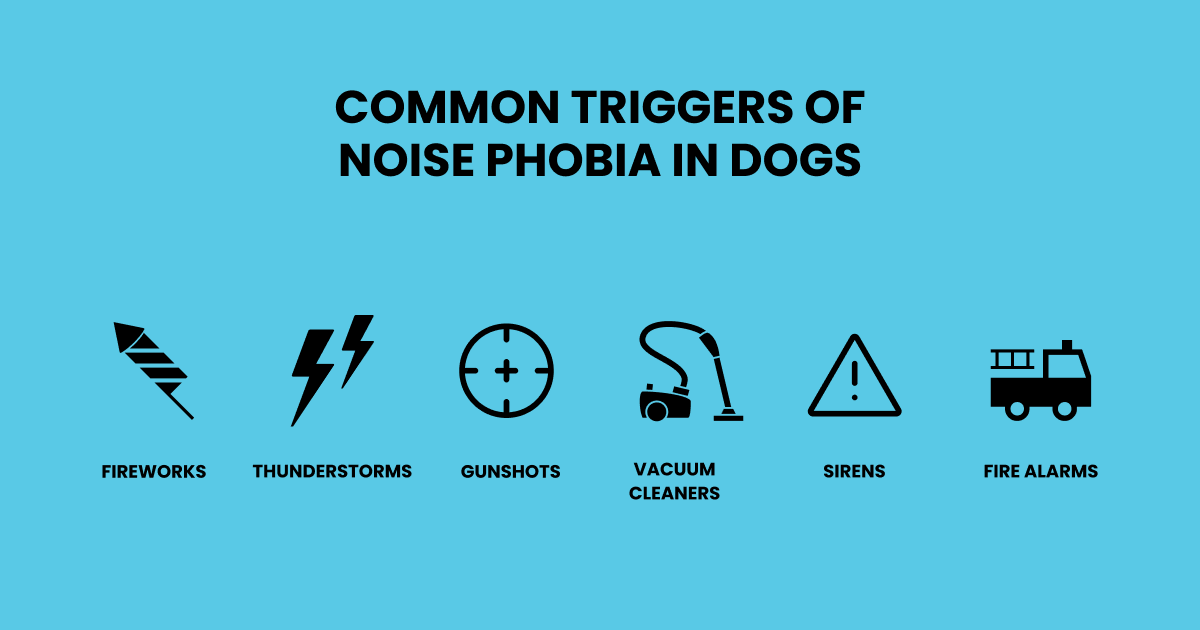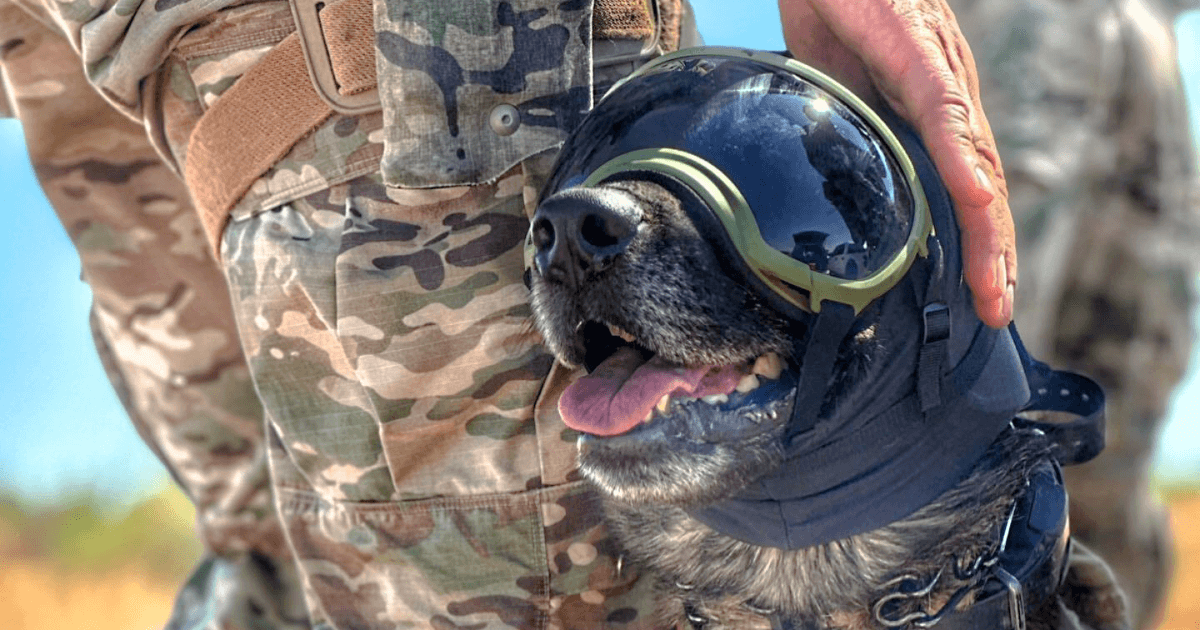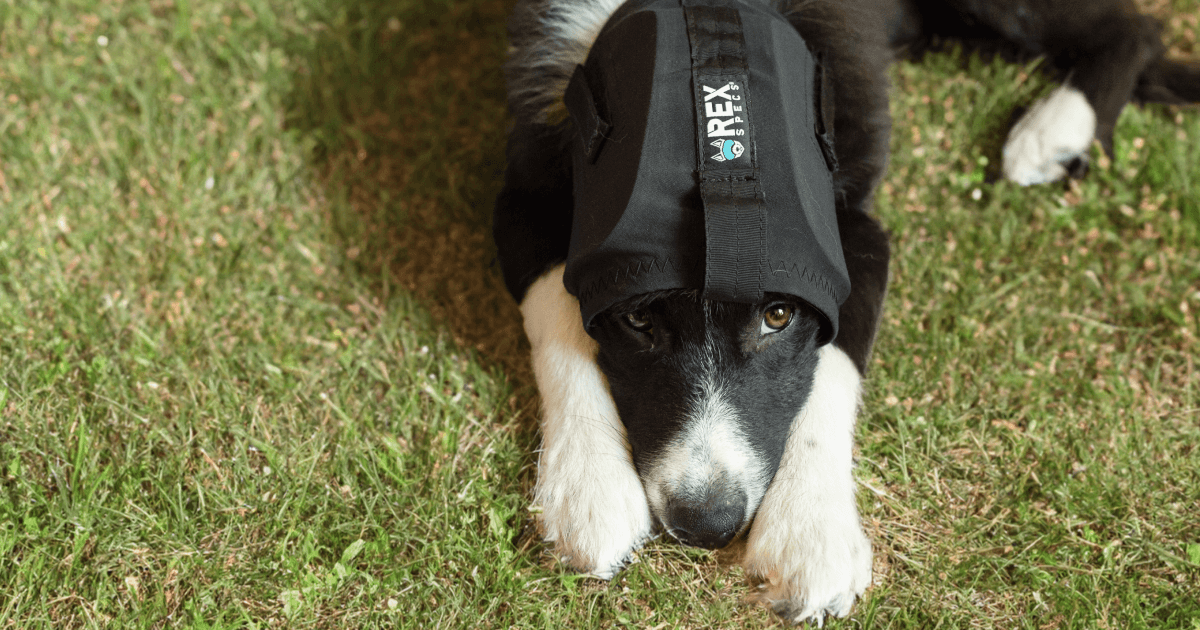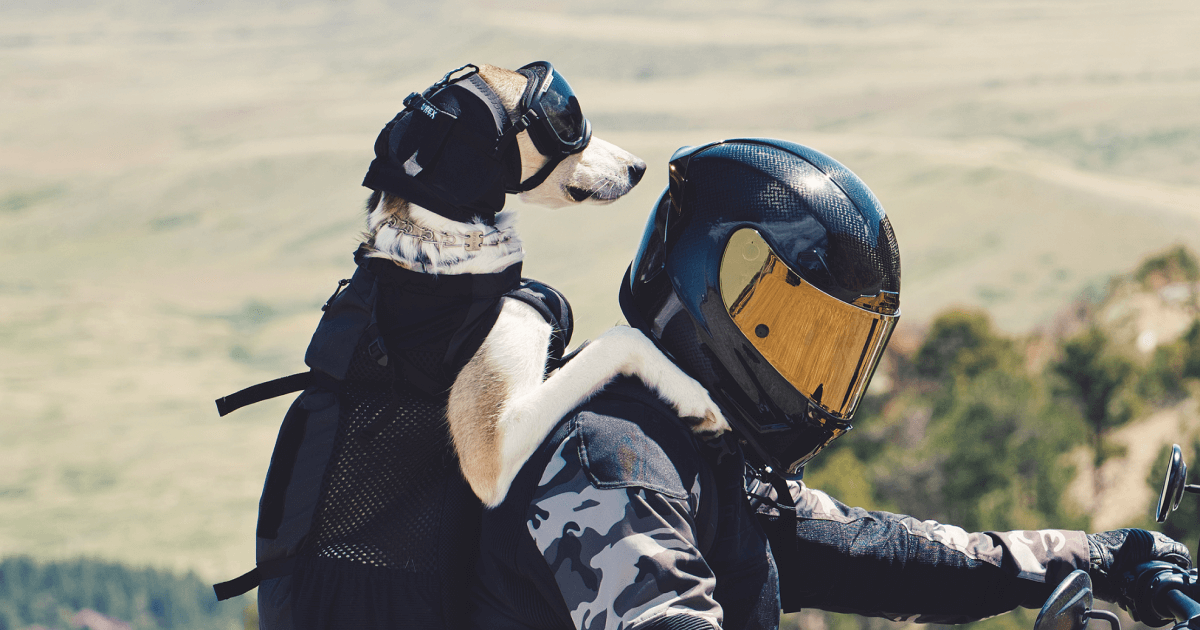Does your dog have a fear of thunderstorms, sirens, or fireworks? Noise phobia in dogs is a common and distressing condition that affects many four-legged friends.
Certain sounds can make even the bravest dog tremble. This fear response can be heartbreaking to witness and challenging to address. But why do some dogs develop noise phobia, and how can you help your furry friend cope?
This article will explore the causes of noise phobia in dogs, share practical strategies to manage your pup's anxiety and provide tips on creating a safer, calmer environment for your dog.
What is Noise Phobia?
Noise phobia is an intense fear or anxiety response to sudden, loud noises. It's a fairly common problem in dogs that can cause significant distress for the animal and its owner. Noise phobia differs from noise sensitivity, which refers to a dog's tendency to be more easily startled by loud noises but does not necessarily cause an intense fear response.
Common Triggers of Noise Phobia in Dogs
A variety of loud, sudden noises can cause noise phobias. Common triggers for noise phobia can include:
- Fireworks
- Thunderstorms
- Gunshots
- Vacuum cleaners
- Sirens
- Fire alarms

What Causes Noise Phobia in Dogs?
The exact causes of noise phobia in dogs are unknown, but several factors may contribute to the condition.
Lack of Exposure
One of the most likely causes of noise phobia is lack of exposure. It can be especially true for puppies who weren’t exposed to various sounds during their important socialization period. Dogs that haven't had the opportunity to experience loud noises in a safe, controlled environment will often show greater fear when they encounter them later in life.
Genetics
Genetics may also play a role in noise phobia. Studies suggest that noise anxiety is more common in certain breeds of dogs, such as Wheaten Terriers and mixed-breed dogs. Dogs with a history of fear or anxiety may be more likely to develop noise phobia or other fear-based behaviors.
Traumatic Experiences
Traumatic experiences or negative associations with noise may also trigger the condition. If a dog has ever been hurt or startled by a loud sound, it may respond with intense fear when presented with similar noises in the future.
Signs Your Dog Has Noise Phobia
If your pup is experiencing noise phobia, they may exhibit various signs. These can include:
- Trembling, shaking, or cowering
- Excessive panting or drooling
- Hiding in enclosed spaces
- Barking or howling
- Increased anxiety or agitation
- Destructive behaviors such as digging or scratching
- Trying to escape from the house
- Urinating or defecating in the home

How To Help a Dog With Noise Phobia
If your dog is showing signs of noise phobia, there are several steps you can take to reduce your dog’s fear and create a calmer environment.
Identify Your Dog's Triggers
The best way to help your dog is to identify their triggers and the level of distress they cause. Does your pup become fearful when thunder rumbles in the distance or when they hear fireworks? Make a list of noises that elicit fear responses in your dog, and note how severe the reactions are. It can help you develop an effective plan for managing your dog’s behavior when encountering these sounds.
Desensitization Training
Desensitization training can be an effective way to help your dog learn that loud noises aren’t something to fear. It involves exposing your dog to the sounds in a controlled environment and gradually increasing the volume over time. You can do this by playing recordings of the sounds that trigger your dog's noise phobia and rewarding them with treats or praise for remaining calm.
Create a Safe Space
Another strategy for managing noise phobia is to create a safe space for your dog to retreat to during loud noises. It can be a crate or a designated room where your dog feels safe and secure. Close the doors and windows to block out as much noise as possible, and provide them with comforting items such as a favorite toy or blanket.
Distraction Techniques
Distraction techniques are also helpful when it comes to managing noise phobia. To distract your pup from loud noises, play with them or engage them in an activity like a puzzle toy. You can also give them treats or chew toys to help keep them distracted and calm.
Ear Protection
In some cases, it may be necessary to use ear protection for your dog. This protective gear is often used for military and working dogs but can also help reduce anxiety in noise-phobic pets. Ear protection can provide a physical barrier to sound and lower the intensity of loud noises.

Training Tips for Dogs With Noise Phobia
Training is crucial to helping your dog learn to navigate their world without fear. Here are some tips to keep in mind when working with your dog:
Start Early
If you have a puppy, starting training early on is important. Gradually introduce your pup to loud noises like vacuum cleaners, doorbells, and other household noises, and reward them for remaining calm. It can help your dog form positive associations with the sounds and build their confidence in new situations.
Use Positive Reinforcement
Positive reinforcement is the most effective way to train a dog, and it helps build trust and a positive bond between dog and handler. When your dog responds positively to a loud noise, reward them with treats or praise. It can reinforce the behavior and teach your dog to remain calm in stressful situations.
Be Patient
Managing noise phobia takes time, patience, and consistency. Don’t get discouraged if progress isn’t immediate — it takes time for dogs to build confidence. Your pup can learn to cope with their fear with consistent training and positive reinforcement.
Stay Calm
Dogs are sensitive to our energy and emotions, so your pup can pick up on that if you’re anxious or frustrated during training sessions. Displaying patience and understanding will help your dog learn to trust you and feel more confident.

Help Your Dog Overcome Their Noise Phobia with Ear Pro
Noise phobia can be challenging to manage, but with the right strategies and protective gear, you can help your dog learn to cope with their fear. Provide comfort and security for your dog during loud events such as fireworks or thunderstorms with Ear Pro.
Proven to effectively reduce noise levels that can trigger your dog’s noise phobia, Ear Pro is the perfect way to give your pup peace of mind. With a comfortable, adjustable hood that’s easy to put on and take off, you can help keep your dog calm and relaxed during loud events.
Learn how to size your dog for Ear Pro.

